7 Tips to Maintain Child Development During the Covid-19 Corona Pandemic
Maintaining the growth and development of children during social distancing is very important. But what are they? Let's check it out
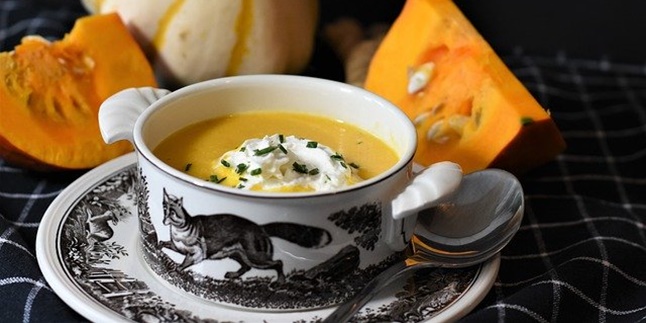
Kapanlagi.com - When the month of Ramadan arrives, we will engage in various special activities, such as eating Sahur and breaking the fast. Sahur meal is not less important than breaking the fast, because Sahur meal is the time when eating and drinking is allowed before the fasting ritual begins. However, did you know that there are several types of foods that should be avoided during Sahur?
The food and drinks consumed during Sahur will become a source of energy for various activities during fasting. However, this does not mean that we can eat as much as we want. On the contrary, it is better to limit our meal portion adequately. In addition, we should also consider the types of food that should be avoided during Sahur.
There are various reasons why certain foods should be avoided during Sahur. Here are some types of food that should be avoided, along with the reasons.
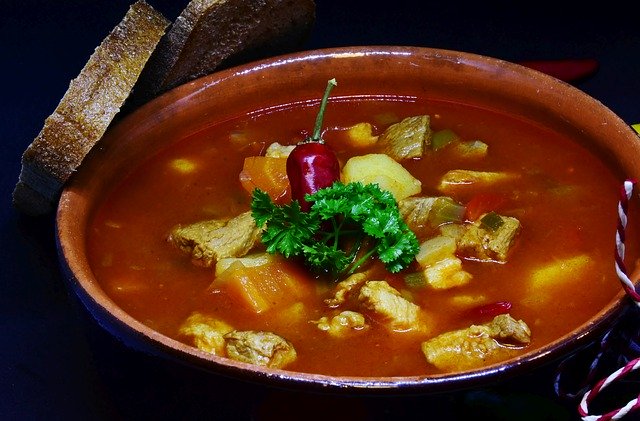
Spicy Food (credit: pixabay)
During the pre-dawn meal in the month of Ramadan, it is advisable to avoid spicy food. Until now, we have known spicy food as one of the types of food that can cause acid reflux or even gastritis. That is also the reason why this type of food should be avoided during the pre-dawn meal.
Eating spicy food during the pre-dawn meal can potentially cause various stomach problems, such as stomachache, indigestion, and even diarrhea. In addition to making the stomach uncomfortable, diarrhea caused by spicy food can also lead to dehydration. However, during fasting, our body is already lacking fluids. Of course, this can be very dangerous for our health.
Just like spicy food, acidic food can also trigger stomach and gastritis problems. In fact, acidic food tends to have a high gas content, making it more likely to cause gastritis and acid reflux. So, in addition to spicy food, it is also advisable to avoid acidic food during the pre-dawn meal.
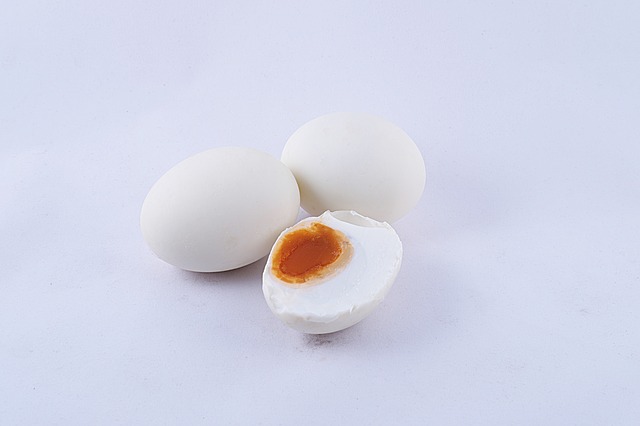
Food that is too salty (credit: pixabay)
Besides spicy food, it turns out that food that is too salty is also not good to consume during suhoor. This is because the excessive salt content in salty food can disrupt the body's process of binding fluids. If this happens, it will result in dehydration.
The type of food that should be avoided for the next suhoor is fatty food. Of course, it makes sense that this type of food needs to be avoided during suhoor. Because, on regular days, it is also recommended to distance ourselves from this type of food.
However, there is still a reason why fatty food should not be eaten during suhoor. This is because fatty food can cause digestive problems such as constipation or diarrhea. Digestive problems caused by fatty food will depend on each individual's body response.
However, there is a reasonable explanation regarding how fatty food can cause digestive problems. Quoted from hellosehat, fatty food can inhibit the process of emptying the stomach, resulting in constipation. On the other hand, fatty food can also accelerate the process of food absorption in the digestive system, causing diarrhea.

Simple carbohydrate foods (credit: pixabay)
As previously explained, eating sahur (pre-dawn meal) is important because it will be a source of energy for us throughout the day while fasting. Therefore, it is advisable to consume enough carbohydrates. Because, as we know, carbohydrates function as an energy source.
However, it turns out that for sahur, we should not consume just any carbohydrates. It is better to avoid consuming simple carbohydrates such as bread, milk, cakes, and so on. Because simple carbohydrates are not able to provide long-lasting energy reserves.
On the contrary, during sahur, it is better to consume complex carbohydrate types such as brown rice, wheat, and oats. Complex carbohydrates will provide perfect energy reserves for the body that is fasting all day long.
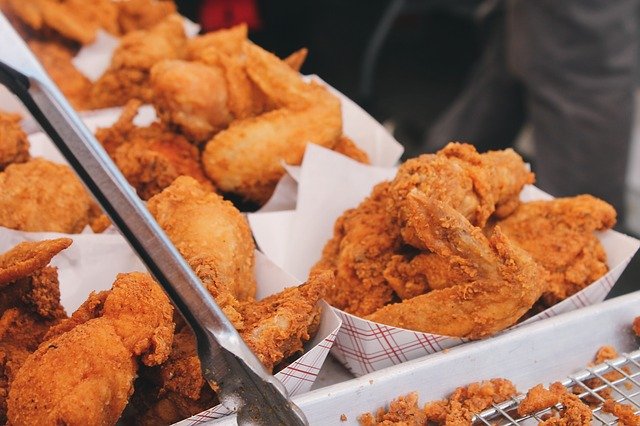
Fried foods (credit: pixabay)
During this time, fried foods may be one of the types of food that many people like. Its crispy texture, savory taste, especially when still warm, make fried foods suitable to be eaten anytime.
However, it turns out that fried foods should also be avoided during suhoor. Of course, this is not without reason. Because, as we know, fried foods contain a lot of oil that can cause throat problems such as inflammation.
Meanwhile, one way to treat inflammation is by drinking water. However, as we know, when fasting, we cannot eat or drink at all. That's why it is advisable to avoid fried foods in your suhoor menu.
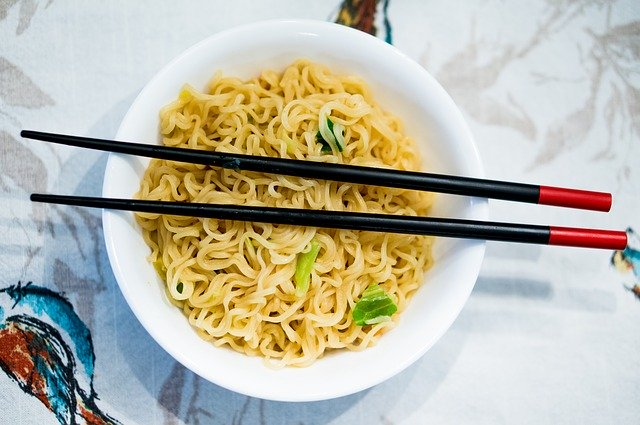
Instant food (credit: pixabay)
Currently, instant foods are still a mainstay for some people. This type of food is favored because it has a definite taste with simple and practical preparation methods. Especially, during suhoor. Some people may choose to cook instant foods because of their easy preparation.
However, it turns out that instant foods should also be avoided during suhoor. Besides being unhealthy, instant foods also contain high sodium or salt. However, excessive sodium consumption can cause dehydration. Types of instant foods that should be avoided include instant noodles, corned beef, sardines, and sausages.
Those are the 7 types of foods that should be avoided during suhoor. Avoid these seven types of foods so that your fasting can go more smoothly.
(kpl/psp/gen)
Cobain For You Page (FYP) Yang kamu suka ada di sini,
lihat isinya
Maintaining the growth and development of children during social distancing is very important. But what are they? Let's check it out
In the month of Ramadan, many people compete to find good deeds in the way of Allah SWT. One of them is through prayers and remembrance. Considering the great benefits of prayers and remembrance during Ramadan, here is a collection of prayers and remembrance as good deeds during Ramadan:
The rejection of funeral actions has been widely discussed and reported. This action has also become rampant in several regions. Then, the question is, can Covid-19 infected corpses spread? Let's check out the following review:
Many are curious about Shireen's tips for wearing a square hijab, which is simple and covers the chest. To satisfy her fans' curiosity, Shireen Sungkar shares how to wear a square hijab through her personal YouTube account.
Many people question whether it is true that children are not susceptible to contracting the corona covid-19 virus. For a clearer explanation, let's check the answer right away.
Ramadan is synonymous with dates. It's no wonder that dates are very easy to find in shopping centers. In addition, dates have a variety of benefits that would be a shame to miss.
Yellow teeth will reduce self-confidence. But what if we can whiten teeth again with cheap and easy costs? It's possible, curious? Let's check it out.
In addition to being beneficial for health, coconut oil can be used to clean household furniture. This method can be tried to overcome household furniture problems such as scratches and make them look newer.
Being grateful to Allah SWT is a way for a servant to express gratitude for all the blessings of life in this world. One way to express gratitude to God is through prostration of gratitude.
The implementation of Large-Scale Social Restrictions (PSBB) in Jakarta prevents the community in the capital from going out freely. There are rules that must be followed when going out of the house. Find out the driving rules during PSBB in this article.
Protecting little ones with extra supervision needs to be done during the current pandemic. Mothers can do several activities at home to protect their little ones. What are the ways? Let's find out.
The issue surrounding blood type O being resistant to corona covid-19 is circulating in the community. So, is the information true?